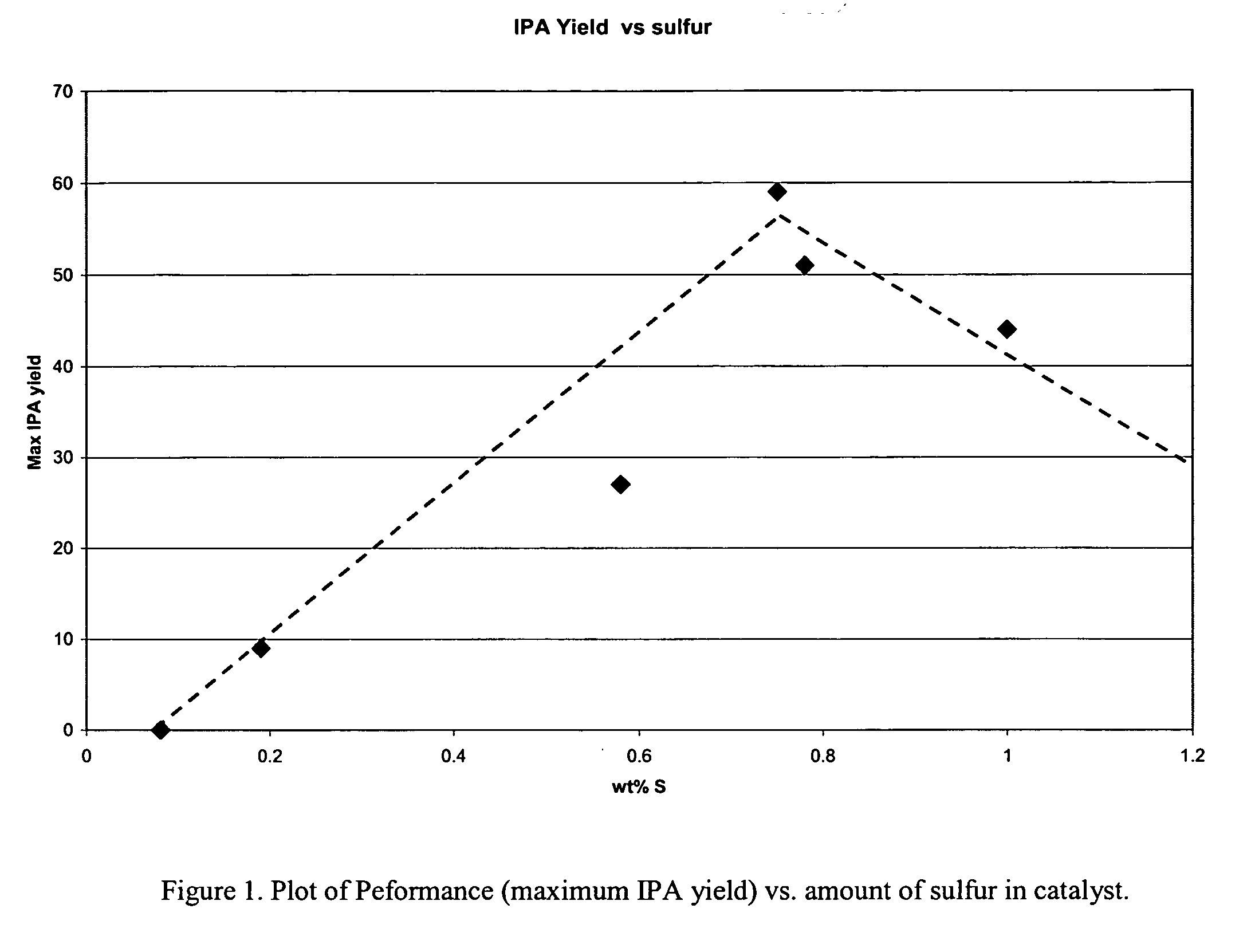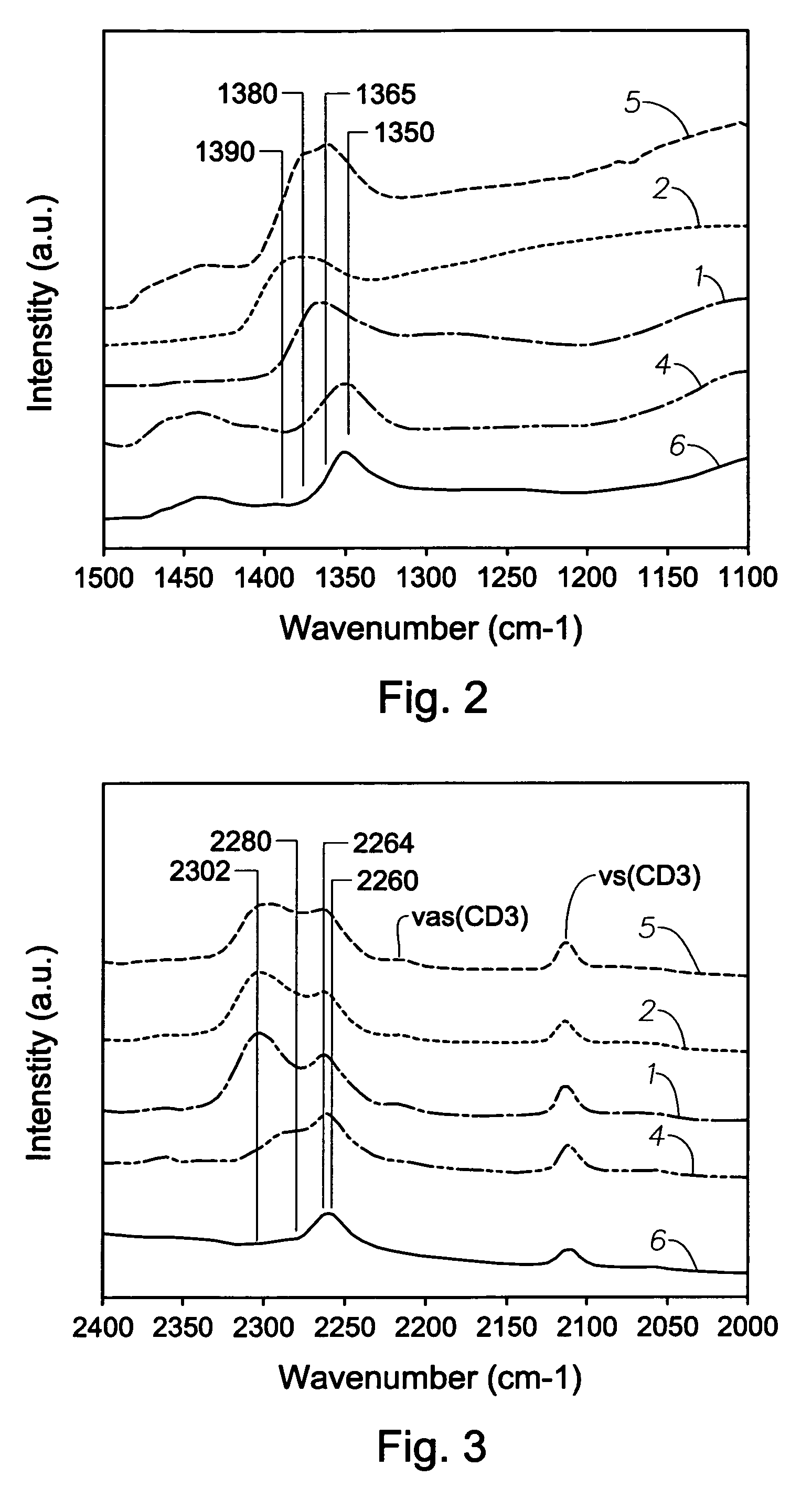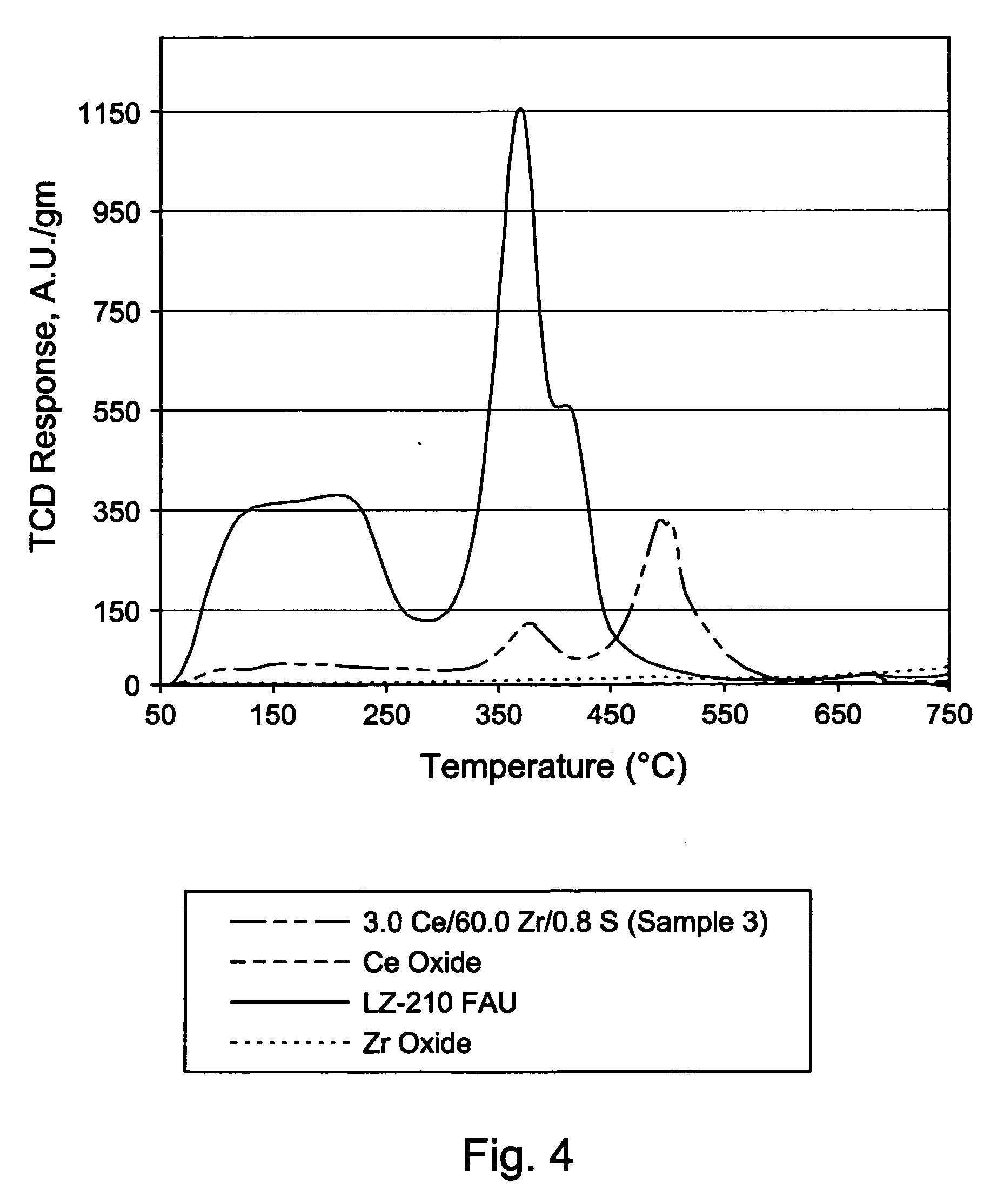Mixed metal oxide containing sulfur
- Summary
- Abstract
- Description
- Claims
- Application Information
AI Technical Summary
Benefits of technology
Problems solved by technology
Method used
Image
Examples
example 1
[0053] Five hundred grams of zirconyl chloride hydrate, ZrOCl2.xH2O, and 14 grams of cerium (IV) sulfate, Ce(SO4)2 were dissolved with stirring in 3.0 liters of distilled water. A second solution containing 260 grams of concentrated NH4OH and 3.0 liters of distill water was prepared. These two solutions were combined at the rate of 50 ml / min using a nozzle mixing. The pH of the final composite was adjusted to approximately 8 by the addition of concentrated ammonium hydroxide. This slurry was then put in polypropylene bottles and placed in a steambox (100° C.) for 72 hours. The product formed was recovered by filtration, washed with excess water, and stored as a filtercake. The filtercake is dried overnight at 250° F. Thereafter the filtercake is calcined at 700° C. for a total of 3 hours in flowing air and then allowed to cool. The elemental analyses are shown in Table 1.
example 2
[0054] Five hundred grams of zirconyl chloride hydrate, ZrOCl2.xH2O, and 140 grams of cerium (IV) sulfate, Ce(SO4)2 were dissolved with stirring in 3.0 liters of distilled water. A second solution containing 260 grams of concentrated NH4OH and 3.0 liters of distill water was prepared. These two solutions were combined at the rate of 50 ml / min using a nozzle mixing. The pH of the final composite was adjusted to approximately 8 by the addition of concentrated ammonium hydroxide. This slurry was then put in polypropylene bottles and placed in a steambox (100° C.) for 72 hours. The product formed was recovered by filtration, washed with excess water, and stored as a filtercake. The filtercake is dried overnight at 250° F. Thereafter the filtercake is calcined at 700° C. for a total of 3 hours in flowing air and then allowed to cool. The elemental analyses are shown in Table 1.
example 3
[0055] One hundred and twenty-five grams of zirconyl chloride hydrate, ZrOCl2.xH2O, and 4.6 grams of cerium (III) nitrate hexahydrate, Ce(NO3)36H2O were dissolved with stirring in 0.5 liters of distilled water. A second solution containing 50 grams of concentrated NH4OH, 54 grams of ammonium sulfate, (NH4)2SO4, and 0.5 liters of distill water was prepared. These two solutions were combined at the rate of 50 ml / min using a nozzle mixing. The pH of the final composite was adjusted to approximately 8 by the addition of concentrated ammonium hydroxide. This slurry was then put in polypropylene bottles and placed in a steambox (100° C.) for 72 hours. The product formed was recovered by filtration, washed with excess water, and stored as a filtercake. The filtercake is dried overnight at 250° F. Thereafter the filtercake is calcined at 700° C. for a total of 3 hours in flowing air and then allowed to cool. The elemental analyses are shown in Table 1.
PUM
| Property | Measurement | Unit |
|---|---|---|
| Temperature | aaaaa | aaaaa |
| Temperature | aaaaa | aaaaa |
| Fraction | aaaaa | aaaaa |
Abstract
Description
Claims
Application Information
 Login to View More
Login to View More - R&D
- Intellectual Property
- Life Sciences
- Materials
- Tech Scout
- Unparalleled Data Quality
- Higher Quality Content
- 60% Fewer Hallucinations
Browse by: Latest US Patents, China's latest patents, Technical Efficacy Thesaurus, Application Domain, Technology Topic, Popular Technical Reports.
© 2025 PatSnap. All rights reserved.Legal|Privacy policy|Modern Slavery Act Transparency Statement|Sitemap|About US| Contact US: help@patsnap.com



